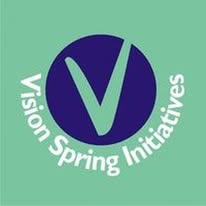Working on women’s issues is already a challenge because it seeks to address or directly tackle issues of patriarchy. For example, there are gender stereotypes and issues of power that Women Human Rights Defenders continue to get confronted with in the cause of their work. There are a number of challenges involving discrimination and religious factors that affect women.

The shrinking civic space in many parts of the world, including conflict-affected regions, significantly hinders accountability for human rights abuses, particularly sexual violence in internally displaced persons (IDP) camps. As governments impose restrictions on civil society activities, Non-Governmental Organizations (NGOs) and Community-Based Organizations (CBOs) face increased challenges in advocating for justice, supporting survivors, and ensuring transparency in the management of IDP camps.
Rates of violence against women and girls rise significantly during conflict and crisis. The IRC estimates that 14 million refugees and displaced women and girls were subjected to sexual violence in 2019. Women and girls forced to flee their homes because of wars, natural disasters, and environmental degradation face a double disadvantage: their risk of violence increases both because of their gender and because they are uprooted from normal protective social support networks and public services.
Forced to flee from their home, refugees and displaced women and girls are in desperate need of protection. Refugee camps often fail to offer the most basic precautions, such as putting locks on toilet doors, keeping male and female facilities apart, and ensuring adequate lighting. This puts women and girls at risk of violence in places that should be havens of safety and sanctuary and prevents them from meeting their most basic daily needs, such as washing.
Despite the central importance of preventing and responding to GBV for women’s and girls’ survival in times of crisis, it is often seen as a second-tier priority during a humanitarian response. Women’s and girls’ safety is not prioritized and continues to be treated with less urgency than other sectors. Less than 0.2% of all global humanitarian funding between 2016-2018 was allocated to Gender Based-Violence prevention and response.
Sexual violence in these camps often goes unreported due to stigma, fear of retribution, or lack of trust in authorities. NGOs and CBOs play a crucial role in bridging this gap by offering survivor-centered services, including counseling, legal assistance, and safe spaces for reporting abuses. They also act as watchdogs, documenting incidents and pressuring relevant authorities to uphold accountability.
However, restricted funding, bureaucratic hurdles, and government crackdowns on their operations diminish their ability to act effectively. The lack of civic space stifles stakeholder dialogue, undermines advocacy efforts, and erodes trust between communities and governing bodies.
To address this, protecting and expanding civic space is crucial. Governments and international bodies must ensure that NGOs and CBOs can operate freely, enabling them to advocate for survivors, pressure authorities for accountability, and ultimately create safer environments within IDP camps.
References:
https://placng.org/i/wp-content/uploads/2022/06/CSOs-and-the-Nigerian-Civic-Space-IN-2021.pdf https://www.ohchr.org/sites/default/files/WHRDEastAfricaReport.pdf
By: Adetutu Soneye
Vision Spring Initiatives
